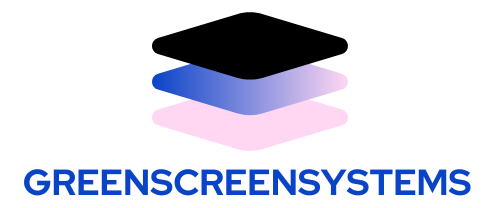Table of Contents
ToggleIn a world where gadgets seem to multiply faster than rabbits, consumer electronics startups are the daring innovators shaking things up. These bold entrepreneurs are not just dreaming up the next big thing; they’re turning wild ideas into reality, often with a sprinkle of humor and a dash of unpredictability. From smart toasters that can tweet to earbuds that can practically read your mind, the landscape is packed with creativity.
Overview of Consumer Electronics Startups
Consumer electronics startups are pushing the boundaries of innovation in the tech space. Entrepreneurs within this sector focus on transforming imaginative concepts into products that resonate with users. They often incorporate humor and unpredictability in their designs, appealing to a wide audience.
Startups like those creating smart toasters that tweet exemplify how creativity fuels this industry. Advanced earbuds capable of reading users’ minds illustrate the ambitious direction these companies are taking. Data shows that consumer electronics startups are adapting quickly to technological advancements and changing consumer preferences.
Investments in these startups reflect strong market demand for unique gadgets. In 2022, the global consumer electronics market reached approximately $1 trillion, showcasing significant growth potential. Innovators in this space prioritize user experiences and often leverage social media for marketing tactics, allowing them to connect directly with consumers.
Collaboration among tech enthusiasts fosters a vibrant startup ecosystem. Many companies harness crowdsourcing for product development, engaging potential customers in the design process. Unique gadgets not only entertain but also address specific needs, enhancing everyday life.
The landscape continues to evolve, driven by a mix of creativity, passion, and technological capability. Startups, with their agile nature, respond swiftly to market trends, indicating a promising future for the consumer electronics industry. This dynamic environment ensures that imaginative solutions remain at the forefront of consumer electronics advancements.
Key Trends in Consumer Electronics

Startups in consumer electronics are at the forefront of transformative trends. These companies drive innovation and adapt to ever-changing consumer needs.
Innovation in Product Design
Product design remains a priority for many startups. Unique functionalities and aesthetic appeal capture consumer attention. Brands create gadgets that surprise users, like toasters that connect to social media. Innovative designs help products stand out in a competitive market. Startups leverage user feedback to refine designs continually. 3D printing plays a significant role in prototyping, allowing quick adjustments based on consumer input. Technology integration leads to multifunctional devices that simplify everyday tasks, enhancing user satisfaction.
Sustainability and Eco-Friendly Practices
Sustainability shapes modern consumer electronics. Many startups embrace eco-friendly materials and production methods. They seek to minimize environmental impact during manufacturing and distribution processes. Recyclable materials feature heavily in product designs, attracting eco-conscious consumers. Brands often engage in fair trade practices, ensuring ethical sourcing. Energy-efficient devices reduce electricity consumption and enhance sustainability. Startups highlight their commitment to eco-friendliness in marketing strategies. Research indicates consumers favor brands that prioritize environmental responsibility, contributing to increased brand loyalty.
Challenges Faced by Startups
Startups in the consumer electronics sector encounter various challenges that impact their growth and sustainability. Securing adequate resources remains a significant hurdle, especially in a competitive landscape.
Funding and Investment Challenges
Securing funding poses a considerable challenge for many startups. Investors often seek proven track records, leaving new ventures with limited options. Many startups struggle to demonstrate viability without prior success. Engaging in pitching events and utilizing crowdfunding can provide alternative pathways to capital. Startups often explore partnerships with established companies for strategic investments, enhancing their credibility. Allocating funds efficiently becomes vital, as new gadgets require substantial development costs. Without proper financial backing, the risk of failure escalates.
Market Competition and Differentiation
Navigating the competitive landscape demands innovative strategies. Startups face established brands with robust market presence and extensive resources. Differentiation becomes essential in attracting attention. Creating unique features fosters brand identity and sets startups apart from competitors. Understanding consumer trends helps startups tailor products effectively, responding to specific needs. Forming strong marketing strategies through social media engagement enhances visibility and customer loyalty. Striking a balance between functionality and aesthetics attracts tech-savvy consumers. A distinct value proposition remains crucial for survival in a saturated market.
Success Stories in Consumer Electronics
Consumer electronics startups showcase remarkable innovation and creativity, resulting in unique products that capture consumer interest. Several notable companies exemplify this trend.
Notable Startups to Watch
Oura Ring stands out with its smart ring, offering health tracking features like sleep and heart rate monitoring. Tile revolutionizes item tracking with its Bluetooth-enabled devices, helping users find misplaced belongings effortlessly. Furbo delivers peace of mind for pet owners by allowing them to alert their pets with a treat dispenser and live video feed. Other impressive startups include Wyze, known for its affordable smart home products, and Anker, specializing in high-quality charging solutions. These companies leverage cutting-edge technology to meet consumer demands and redefine market standards.
Lessons Learned from Successful Ventures
Successful consumer electronics startups emphasize the importance of rapid prototyping. Adopting user feedback during the design process helps refine products and enhance customer satisfaction. Additionally, focusing on sustainability resonates with environmentally conscious consumers. Research indicates brand loyalty increases when companies prioritize eco-friendly practices. Startups also benefit from engaging storytelling that connects their brand with customers on personal levels. Building strong social media presence enables direct communication and ultimately drives sales. Understanding the competitive landscape allows these companies to carve out unique niches while maintaining flexibility to adapt to market changes.
Future of Consumer Electronics Startups
Consumer electronics startups are securing a significant foothold in the market, driven by innovation and creativity. The global consumer electronics market, reaching approximately $1 trillion in 2022, highlights the strong demand for unique products. Startups are not just keeping pace with technological advancements; they’re often leading the charge, redefining user experiences with multifunctional devices.
Product design plays a critical role in this evolution. Unique features and aesthetic appeal attract consumers, while startups leverage user feedback for continuous improvement. Rapid prototyping through methods like 3D printing accelerates the development process, allowing for quick iterations that meet consumer needs.
Sustainability emerges as a vital focus among these companies. By choosing eco-friendly materials and sustainable practices, startups appeal to environmentally conscious consumers. Research shows that a significant portion of shoppers prefer brands that prioritize environmental responsibility, which fosters brand loyalty.
Challenges persist, particularly regarding funding and resources. Many startups struggle to secure investment, relying on crowdfunding and partnerships to build credibility. Competition amplifies these challenges, with established brands possessing substantial resources. Differentiation becomes essential, and startups emphasize unique innovations and strategic marketing to thrive.
Success stories such as Oura Ring, Tile, and Furbo exemplify the potential within the industry. Each startup showcases the importance of addressing consumer needs through innovative products. Engaging storytelling and a robust social media presence enhance connections with customers, driving sales and brand recognition.
As consumer preferences continue to evolve, the adaptability of these startups positions them favorably in the marketplace. Their commitment to creativity, sustainability, and user engagement ensures a vibrant future for the consumer electronics industry, reinforcing the transformative impact of startups on the tech landscape.
The landscape of consumer electronics is being reshaped by innovative startups that prioritize creativity and sustainability. These entrepreneurs are not just introducing quirky gadgets but are also addressing real consumer needs through unique designs and user engagement. Their ability to adapt to rapid technological changes and market demands sets them apart in a competitive industry.
As they continue to push boundaries and redefine standards, the future of consumer electronics looks promising. By leveraging user feedback and sustainable practices, these startups are poised to make a lasting impact, ensuring they remain relevant in an ever-evolving market. The commitment to innovation and connection with consumers will undoubtedly drive their success in the years to come.




